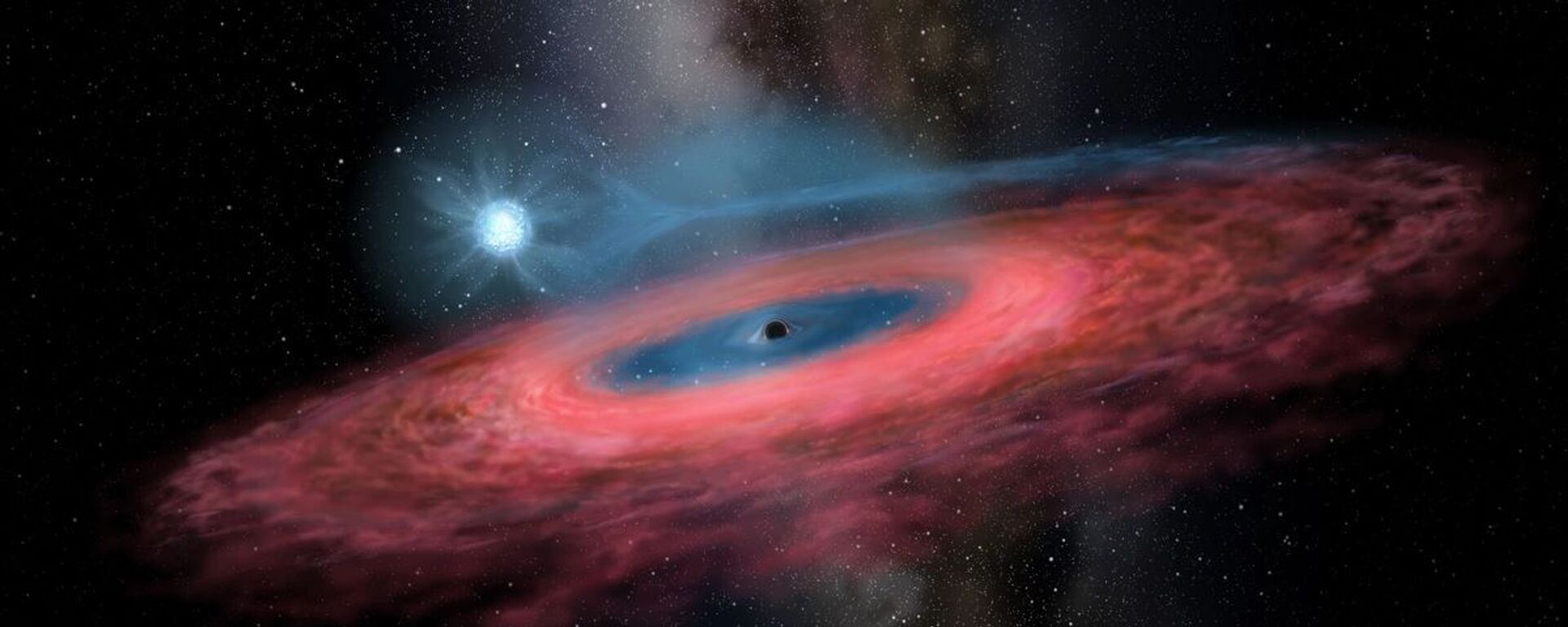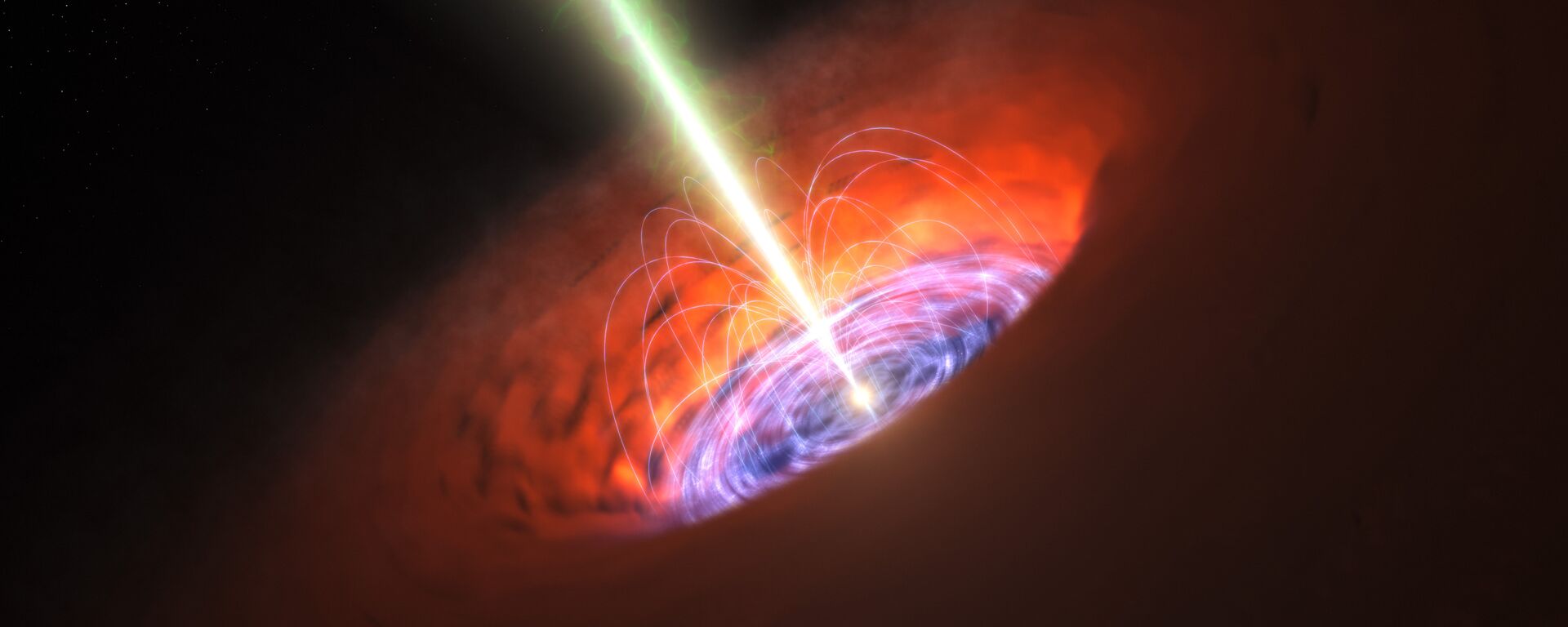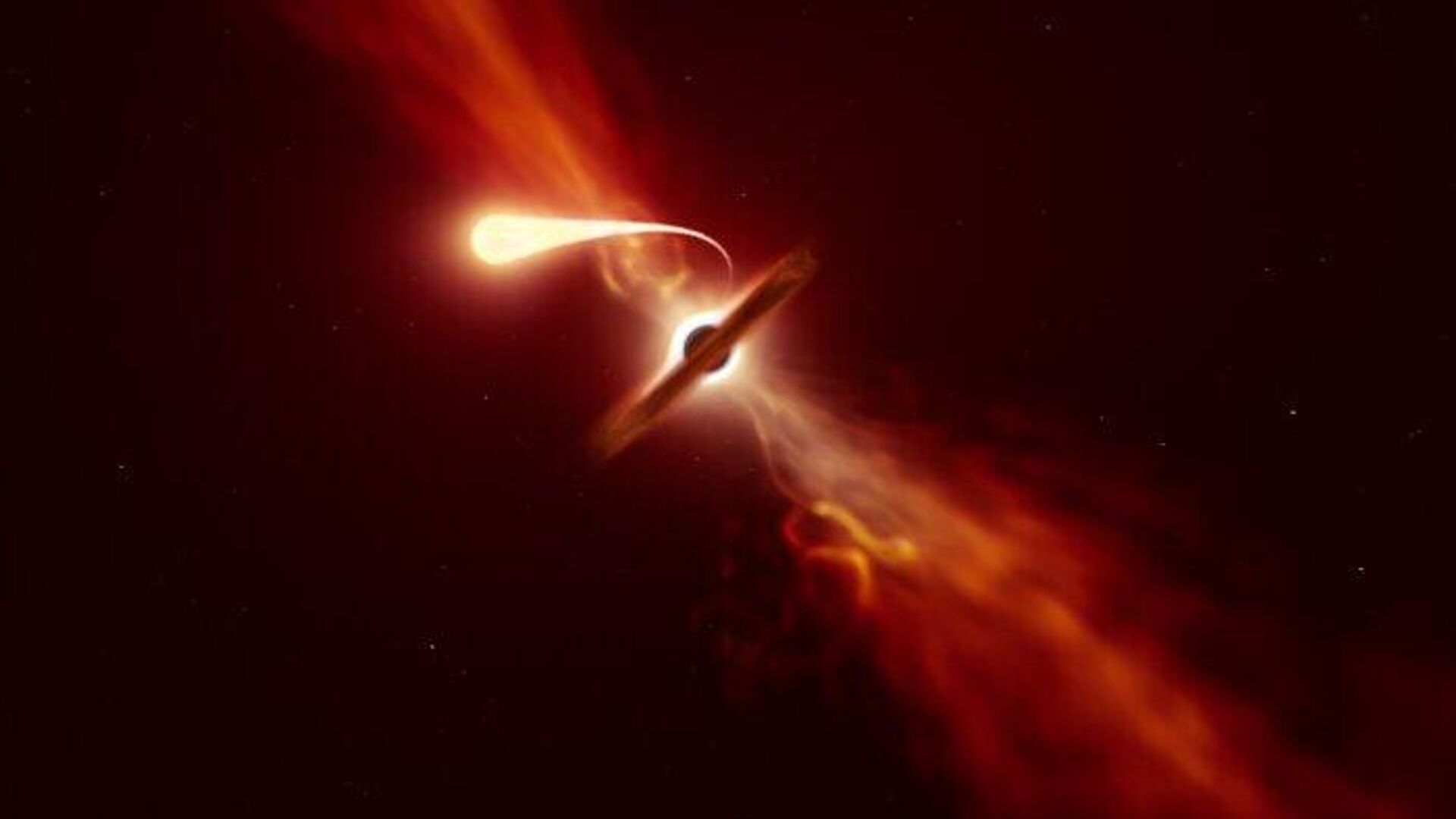https://sputnikglobe.com/20240119/webb-telescope-uncovers-oldest-most-distant-black-hole-ever-observed-1116259351.html
Webb Telescope Uncovers Oldest, Most Distant Black Hole Ever Observed
Webb Telescope Uncovers Oldest, Most Distant Black Hole Ever Observed
Sputnik International
An international team led by the University of Cambridge has used the James Webb Space Telescope (JWST) to observe the oldest known black hole.
2024-01-19T00:02+0000
2024-01-19T00:02+0000
2024-01-19T00:02+0000
beyond politics
galaxy
space
black hole
james webb space telescope (jwst)
science & tech
space exploration
astronomy
https://cdn1.img.sputnikglobe.com/img/07e7/07/05/1111685110_0:16:700:410_1920x0_80_0_0_85f83f8981b97afacdf31d444cb45064.jpg
An international team led by the University of Cambridge has used the James Webb Space Telescope (JWST) to observe the oldest known black hole. Researchers with the investigating team say the black hole dates back to more than 13 billion years ago, some 400 million years after the big bang.Typically, black holes are formed when massive stars die in a supernova explosion and their cores collapse under gravitational force. The result is a gravitational pull that is so intense, not even light can escape. Some black holes are also formed from stellar collisions, and some early universe black holes called “direct-collapse black holes” are created simply by early galaxies influencing each other.Astronomers believe this black hole could not have formed from the death of a star, as the black hole is 1.6 million times the mass of our sun, and was in place 400 million years after the creation of the universe. Scientists have surmised the celestial body could not have grown so large in a relatively short timespan, space-wise.Astronomers theorize the black hole could have been born at its current size, or it ate up matter at a rate about five times higher than what was thought to be possible - and eating up matter is precisely what this galaxy is doing.The black hole feeds on its host galaxy GN-z11, which was first spotted in 2016 and was the most distant galaxy identified at that point. The black hole is believed to be radiating energy at such a high rate that it could sweep away the gas within its host galaxy.Maiolino adds that he and his team hope future JWST observations of black holes will help them determine the different manners in which black holes form.The study was published Wednesday in the journal Nature.
https://sputnikglobe.com/20230915/closest-black-holes-are-likely-much-closer-than-we-think-astronomers-say-1113385907.html
https://sputnikglobe.com/20230907/researchers-accidentally-make-first-ever-measurement-of-black-holes-swirling-accretion-disk-1113190223.html
Sputnik International
feedback@sputniknews.com
+74956456601
MIA „Rossiya Segodnya“
2024
News
en_EN
Sputnik International
feedback@sputniknews.com
+74956456601
MIA „Rossiya Segodnya“
Sputnik International
feedback@sputniknews.com
+74956456601
MIA „Rossiya Segodnya“
space, galaxy, jwst, black hole, what is the oldest black hole found, what is the webb telescope, space exploration, space discovery, black hole exploration,
space, galaxy, jwst, black hole, what is the oldest black hole found, what is the webb telescope, space exploration, space discovery, black hole exploration,
Webb Telescope Uncovers Oldest, Most Distant Black Hole Ever Observed
The black hole dates back to the dawn of the universe, and astronomers say it is “eating” its host galaxy to death.
An international team led by the University of Cambridge has used the James Webb Space Telescope (JWST) to observe the oldest known black hole.
Researchers with the investigating team say the black hole dates back to more than 13 billion years ago, some 400 million years after the big bang.
Typically,
black holes are formed when massive stars die in a supernova explosion and their cores collapse under gravitational force. The result is a gravitational pull that is so intense, not even light can escape. Some black holes are also formed from stellar collisions, and some early universe black holes called “direct-collapse black holes” are created simply by early galaxies influencing each other.
Astronomers believe this black hole could not have formed from the death of a star, as the black hole is 1.6 million times the mass of our sun, and was in place 400 million years after the creation of the universe. Scientists have surmised the
celestial body could not have grown so large in a relatively short timespan, space-wise.
"It is essentially not possible to grow such a massive black hole so fast so early in the universe," said Robert Maiolino, an astrophysicist at the University of Cambridge. "Essentially, there is not enough time according to classical theories. So one has to invoke alternative scenarios."

15 September 2023, 03:48 GMT
Astronomers theorize the black hole could have been born at its current size, or it ate up matter at a rate about five times higher than what was thought to be possible - and eating up matter is precisely what this galaxy is doing.
"This black hole is essentially eating the [equivalent of] an entire sun every five years," Maiolino noted. "It's actually much higher than we thought could be feasible for these black holes."
The black hole
feeds on its host galaxy GN-z11, which was first spotted in 2016 and was the most distant galaxy identified at that point. The black hole is believed to be radiating energy at such a high rate that it could sweep away the gas within its host galaxy.
Maiolino adds that he and his team hope future JWST observations of black holes will help them determine the different manners in which black holes form.
The study was published Wednesday in the journal
Nature.

7 September 2023, 21:21 GMT




